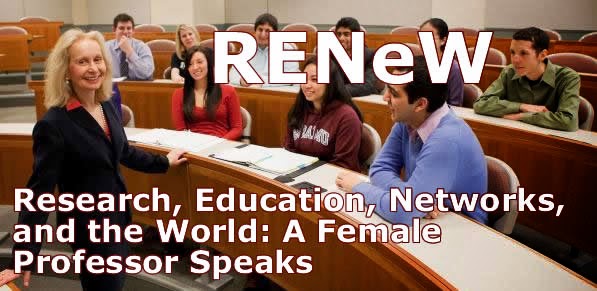Having speakers come to campus is always a highlight and I have written a blogpost on "Tips for Organizing a Successful Speaker Series," which is one of my most popular ones.
Guest speakers also add tremendous value to a course!
This semester, I am offering, for the second time at UMass Amherst, a course on Humanitarian Logistics and Healthcare, with the syllabus available here. The course has attracted students from the Isenberg School of Management, the School of Public Health, and the College of Engineering. One of the highlights of the course is the speakers that come to share their experiences with our students.
But, of course, scheduling speakers is a logistical exercise, because not only is it important to have them come when it makes sense in the course curriculum, but also practitioners in the space of disaster preparedness and emergency response are very busy people!
I am absolutely delighted that, in February, the students in my class will have the opportunity to hear from 4 experts: the new Director of Emergency Preparedness and Business Continuity at UMass Amherst, the Executive Director of the Red Cross of the Pioneer Valley, a renowned doctor from the University Health Services who has done relief work in Haiti, post the devastating earthquake, and also saved lives at the Boston Marathon bombing on April 15, 2013, as well as a top TV anchor from western Massachusetts!
The positive response to my invitations has been overwhelming and the speakers have agreed, despite scheduled surgeries, and other professional and personal obligations, to share their knowledge and wisdom with students.
One of my greatest challenges in terms of bringing speakers together (all at the same time) was the Humanitarian Logistics: Networks for Africa Workshop that I organized on behalf of the Rockefeller Foundation's Bellagio Center program back in May 2008. This workshop, which took place at the Rockefeller Foundation's Bellagio Center on Lake Como in Italy, was (unplanned) situated between two major disasters: Cyclone Nargis that hit Myanmar/Burma and the Sichuan earthquake in China.
This workshop was one of the most stimulating workshops that I have had the honor to be part of with experts from academia (from 3 continents), practitioners from the UN and CSIRO, and humanitarian logisticians with amazing experiences from the field! My final report on the workshop to the Rockefeller Foundation is available here.
I will be sharing what we learn from the outstanding speakers in my Humanitarian Logistics and Healthcare class. At this point, I want to acknowledge them and to thank them for taking the time out of their extremely busy schedules to come to the Isenberg School to share their vast knowledge and experiences on various aspects of emergency preparedness and response.
I asked my students yesterday the question: "Whom Have You Helped?" and told them that one of the themes of the professional society INFORMS (Institute for Operations Research and the Management Sciences) that I belong to and have benefited from greatly is Doing Good with Good O.R. (Operations Research).
A great question to answer and live by every day: "Whom Have You Helped?"
About Me
- Dr. Anna Nagurney
- Dr. Anna Nagurney is the Eugene M. Isenberg Chair in Integrative Studies at the Isenberg School of Management at the University of Massachusetts Amherst. She was appointed to this chaired professorship on April 14, 2021. Prior to this chaired professorship, since 1998, she was the John F. Smith Memorial Professor of Operations Management. She was a Visiting Fellow at All Souls College at Oxford University for the 2016 Trinity term. She was a Visiting Professor at the School of Business, Economics and Law at the University of Gothenburg in Sweden for 2012, 2013, 2014, and 2015. Her latest book is: Labor and Supply Chain Networks, published by Springer in 2023. Her other recent book, co-edited with I. Kotsireas, P.M. Pardalos, and A. Tsokas, is: Dynamics of Disasters: Impact, Risk, Resilience, and Solutions, and was published by Springer in 2021. She is also the co-author of the book: Competing on Supply Chain Quality: A Network Economics Perspective, with D. Li, and published in 2016. She is the Founding Director of the Virtual Center for Supernetworks, which she established in 2001.
Subscribe To RENeW


Recent Visitors
Blog Archive
-
▼
2014
(161)
-
▼
January
(12)
- Logistics Behind Scheduling Speakers for My Humani...
- Two Great Upcoming Events at the Isenberg School -...
- How Was Your First Day of Classes?
- Operations Researchers and the World Economic Foru...
- The Braess Paradox is Back and in New Scientist
- Welcome Back, Coach Mark Whipple, to UMass Amherst...
- Big Milestone - 5 Years of Blogging and Post Numbe...
- INFORMS New Social Media Analytics Subdivision Tha...
- Kafkaesque Operations Management and the Good Jobs...
- FireEye Acquires Mandiant and Why Cybersecurity Ma...
- Network Approach to Mergers & Acquisitions
- Facebook Data to the Rescue of Metcalfe's Law
-
▼
January
(12)

















